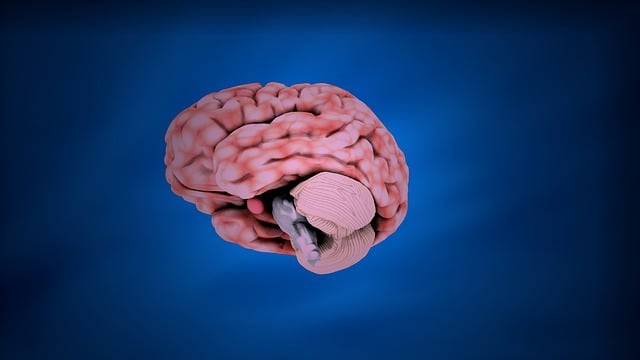Crisis Intervention Teams (CITs), composed of diverse professionals, are vital in providing immediate and effective support during mental health crises like suicidal ideation, psychotic episodes, and trauma responses. With anxiety disorders being globally prevalent and significantly impacting daily life, early intervention through specialized therapy for adults anxiety is crucial. Effective CIT training includes evidence-based practices, cultural competency, stress reduction methods, de-escalation techniques, and self-care strategies. Programs integrating cognitive-behavioral therapy (CBT) tailored to adults with anxiety disorders, along with regular evaluations and participant feedback, ensure the team is well-prepared and effective in providing both immediate crisis support and long-term solutions for individuals experiencing therapy for adults anxiety.
In today’s fast-paced world, crisis intervention teams (CITs) play a vital role in providing immediate mental health support. This article explores the importance of CIT training programs, especially in addressing anxiety disorders—a prevalent and often hidden challenge. We delve into key components of effective training, practical skills for team members, and successful implementation strategies. Understanding the impact of anxiety and the urgency of early intervention, this guide highlights how robust CIT programs can revolutionize therapy for adults suffering from anxiety.
- Understanding Crisis Intervention Teams: A Vital Resource for Mental Health Support
- The Impact of Anxiety Disorders and Why Early Intervention is Crucial
- Key Components of Effective Crisis Intervention Team Training
- Practical Skills for Team Members: From De-escalation to Post-crisis Care
- Implementing and Evaluating Crisis Intervention Programs: Strategies for Success
Understanding Crisis Intervention Teams: A Vital Resource for Mental Health Support

Crisis Intervention Teams (CITs) are a vital resource in the mental health support landscape, offering crucial assistance during moments of acute crisis. These specialized teams typically consist of trained professionals from various disciplines, including psychologists, social workers, and psychiatrists, who collaborate to provide immediate and effective interventions. CITs play a pivotal role in de-escalating high-risk situations, such as suicidal ideation, psychotic episodes, or severe trauma responses, ensuring individuals receive the therapy for adults anxiety they need without delay.
In today’s world, where mental wellness is increasingly recognized as an integral aspect of overall health, CITs have become even more essential. The Mental Wellness Podcast Series Production highlights the critical need for accessible and efficient crisis support, while Self-Care Routine Development for Better Mental Health emphasizes the value of proactive measures. By training CIT members in evidence-based practices and self-care practices, communities can ensure that these teams are equipped to offer not just immediate interventions but also long-term solutions, fostering a culture of resilience and recovery.
The Impact of Anxiety Disorders and Why Early Intervention is Crucial

Anxiety disorders are among the most prevalent mental health concerns globally, affecting millions of adults. The impact of these disorders goes far beyond mere discomfort; they significantly impair daily functioning and overall quality of life. Early intervention through specialized therapy for adults with anxiety is crucial for several reasons.
First, prompt addressing allows for more effective management of symptoms. Anxiety often exacerbates over time, leading to a cycle of avoidance and increased anxiety. Timely intervention disrupts this cycle by teaching individuals coping strategies, challenging negative thought patterns, and fostering self-esteem improvement. Additionally, early therapy can prevent the development of complex co-morbidities that frequently accompany untreated anxiety disorders. These include depression, substance abuse, and other mental illnesses. Furthermore, in light of ongoing mental illness stigma reduction efforts, crisis intervention team training programs play a vital role in equipping individuals with tools to navigate emotional healing processes while promoting understanding and compassion within their communities.
Key Components of Effective Crisis Intervention Team Training

Effective crisis intervention team training programs are multifaceted, encompassing various key components to prepare healthcare providers for high-pressure situations. One of the core elements is therapy for adults with anxiety disorders, as these conditions frequently co-occur with crises. Training should equip team members with skills to recognize and manage anxiety symptoms during a crisis, ensuring a calmer and more controlled environment.
Additionally, healthcare provider cultural competency training plays a vital role in fostering inclusive responses. Understanding the diverse backgrounds and perspectives of those in crisis allows for more nuanced interventions. This includes teaching stress management and stress reduction methods tailored to different cultural contexts, enhancing the team’s ability to connect with individuals from various walks of life. Such comprehensive training ensures that crisis intervention teams are well-prepared, empathetic, and effective in their responses.
Practical Skills for Team Members: From De-escalation to Post-crisis Care

Effective crisis intervention team training equips members with a range of practical skills to handle critical situations and provide support post-crisis. These skills include de-escalation techniques, which are crucial in calming individuals experiencing anxiety or intense emotions. Training programs teach team members how to recognize triggers and use communication strategies to reduce tension, fostering a sense of safety and security.
Beyond de-escalation, the curriculum often covers self-care practices and empathy building strategies essential for both personal resilience and effective crisis support. Self-awareness exercises help team members understand their emotional responses, enabling them to remain calm under pressure. These skills are vital in providing quality care, especially when assisting individuals struggling with therapy for adults anxiety or other mental health challenges.
Implementing and Evaluating Crisis Intervention Programs: Strategies for Success

Implementing effective crisis intervention programs requires a structured approach and continuous evaluation to ensure success in providing critical support for individuals experiencing anxiety and other mental health crises. A key strategy involves integrating evidence-based therapy techniques, such as cognitive-behavioral therapy (CBT) tailored for adults with anxiety disorders, into the program curriculum. This ensures that participants gain practical tools to manage their symptoms effectively.
Regular evaluation is another vital component. Measuring the success of crisis intervention programs can be achieved through pre and post-program assessments, feedback from participants, and observations by trained facilitators. By utilizing these methods, the program’s effectiveness in delivering anxiety relief, improving communication strategies, and fostering community outreach can be accurately assessed. This data informs necessary adjustments to the program implementation, ensuring it remains responsive to the evolving needs of those seeking support.
Crisis intervention team training is a powerful tool in enhancing mental health support, especially for individuals dealing with anxiety disorders. By equipping teams with essential skills like de-escalation and post-crisis care, we can significantly improve outcomes for those in need. Effective programs, as discussed, prioritize comprehensive education, real-world practice, and ongoing evaluation. Investing in these training initiatives is a step towards building resilient communities that offer timely and quality therapy for adults suffering from anxiety, ultimately fostering a more supportive environment.











